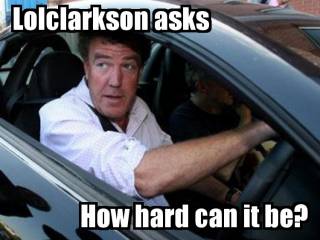Building the Perfect Retro Gaming Podcast
By count_zero 2 Comments
This was originally a blog post on my personal blog.

With its next episode, one of the Internet’s best retro game podcasts, Retronauts, is coming to an end. This leaves a bit of a void, as I can’t think of a lot of truly great retro game podcasts out there. Destructoid’s Retro Game Podcast, which was okay, but not great, has ended. IGN’s retro game podcast is similarly over. However, I can still think of demand for podcasts in this field, and even material that the Retronauts themselves haven’t covered yet (if only retro Wrestling video games). So, with that in mind, I’ve put some thought to the concept of what made Retronauts great, and what other podcasts (or new retro game podcasters) can do to meet or exceed the standards set by Retronauts.
Now, I’m going to stay centric to podcasts about retro video games here. There are plenty of books and web pages with general-purpose podcast advice, not to mention a really nice Dummies book on the topic.
Do a Lot of Research: This probably doesn’t bear mentioning, but I’m going to say it anyway. Do a boatload of research. Beyond what you can find in searchable articles on the internet – get old video game magazines, build a library about the video game industry, particularly with books like Game Over. However, the 1up Crew also has contacts with people who were in the game industry at the time – primary sources, if you will. If you really want to hit the pinnacle for this genre, you need to cultivate some of those.
Don’t Spend Time Bashing New Games: I listen to retro podcasts because I enjoy used games, partly out of nostalgia, and partly because many of them are very good. However, as Sturgeon’s Law says, 90% of everything is crap – even old games. Just because they’re older doesn’t mean they’re good. Additionally, just because newer games are mainstream, and trying to appeal to the “causal” market doesn’t mean they’re all dumbed down crap for babies. If you’re going to talk about old games, discuss old games. Don’t waste time complaining about how horrible new games are, and how old games are better. I don’t need nor want to listen to a bunch of grognards go on about how great everything was back in the day. If I did, I’d hang out on Dragonfoot, and listen to the Dungeons & Dragons equivalent of the Four Yorkshiremen sketch.
Do Bring Up Personal Recollections: Part of the fun of video game history is remembering what it was like for us as kids playing these kinds of video games. Consequently, personal experience playing these games and game systems as a kid is important for making discussion of these events fun, and more than just a series of historical events – though that can be fun to listen to as well.
Don’t Have A Love-In: Yes, we have fond recollections of playing classic video games as young people, and for retro games in general. However, we shouldn’t let fond memories color our discussions of them too much now. Limited continues on console games are crap. Enemies spawning out of nowhere solely to block your jump is crap game design. If you wouldn’t forgive a modern game for a similar gameplay design choice, stop before you give a classic game a pass.
Don’t Be Over Hateful: Normally I alternate my Dos and Don’ts, but here I need to have two in a row. We have the Nostalgia Critic, the Angry Video Game Nerd, and Yahtzee. They do a wonderful job of unleashing their vitriol on classic games and film (and modern games for that matter) on video. We don’t need an hour-long or longer podcast doing the same thing.
Do Get Panelists With Chemistry: Podcasts live and die by their hosts. Get people you can have a long conversation with, who you don’t always agree with, but who you can come to compromise with on various topics, particularly in your podcast. If you’ve had a long, discussion with someone about video games regularly In Real Life, then you’ll probably want them on your podcast.
Finally, Have Fun: If you and your panelists are having fun, that will carry over in your voices to the podcast you’re having. If you’re faking it, that will carry over as well. So, relax, you’re talking about video games. It’s supposed to be fun.
